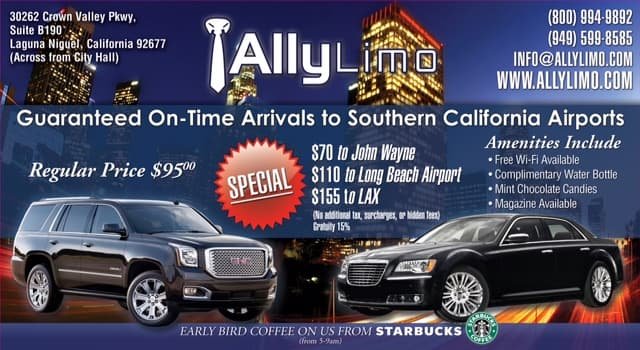Did you know that limousine services in Boston are currently not subject to sales tax? This surprising fact raises an important question: should there be sales tax imposed on limo services in Boston?
The issue of sales tax on limo services in Boston has garnered attention due to the potential revenue it could generate for the city. Currently, limo services are exempt from sales tax, unlike taxis and ride-sharing services. This exemption has led to an imbalance in the transportation industry, as these services compete for passengers without the same tax obligations. Implementing sales tax on limo services could level the playing field and provide a fairer environment for all transportation providers in Boston.
Making the decision on whether there should be sales tax for limo services in Boston is a complex issue. While some argue that implementing sales tax would generate revenue for the city, others believe it would burden consumers and hurt the limo industry. Considering the pros and cons, it’s important for policymakers to carefully evaluate the potential impact on both the economy and the transportation sector before making a final decision.
Should There Be Sales Tax on Limo Services in Boston?
Limo services are a popular means of transportation in cities like Boston, offering luxury and convenience to residents and visitors alike. However, there is an ongoing debate about whether sales tax should be imposed on these services. Some argue that it would be fair to tax limo services like any other commodity, while others believe that such a tax would only burden consumers and hinder the growth of the industry. In this article, we will explore the arguments on both sides of the issue and consider the potential implications of implementing sales tax on limo services in Boston.
The Case for Sales Tax on Limo Services
Proponents of sales tax on limo services argue that it would level the playing field and create a more equitable system. Currently, other forms of transportation like taxis and rideshare services are subject to sales tax, while limo services are exempt. This exemption can create an unfair advantage for limo operators and skew the market in their favor. By imposing sales tax on limo services, it would ensure that all forms of transportation are subject to the same taxation rules, promoting fairness and healthy competition in the industry.
In addition to promoting fairness, implementing sales tax on limo services could generate a significant amount of revenue for the city. Limo services are often associated with luxury and higher-end clientele, meaning the potential tax revenue from such services could be substantial. This revenue can be used to fund public infrastructure projects, improve public transportation, or invest in other areas that benefit the community as a whole.
Furthermore, those in favor of sales tax argue that it would discourage excessive consumption of limo services and promote more sustainable and environmentally-friendly modes of transportation. By making limo services slightly more expensive through the imposition of sales tax, people may be more inclined to consider alternative options such as public transit, biking, or walking. This would not only reduce traffic congestion but also contribute to efforts in combating climate change and promoting a greener city.
The Arguments Against Sales Tax on Limo Services
Opponents of sales tax on limo services believe that such a tax would place an unfair burden on consumers and hinder the growth of the industry. Limo services are already considered a luxury and are priced accordingly. Adding sales tax on top of that would make the cost of these services even more prohibitive for many individuals and businesses. This could deter potential customers and lead to a decline in demand for limo services, which would negatively impact the industry and potentially result in job losses.
Another argument against sales tax on limo services is that it could stifle innovation and limit the development of the industry. Without the burden of sales tax, limo operators have the freedom to invest in new technologies, improve their services, and expand their businesses. Introducing sales tax may hamper their ability to invest in these areas, ultimately hindering their competitiveness and growth.
Furthermore, opponents argue that exempting limo services from sales tax aligns with the nature of these services. Limo services are often utilized for special occasions, events, or business purposes, and are not necessarily a regular means of transportation for most people. By exempting limo services from sales tax, it recognizes the unique nature of these services and the different consumer behavior they cater to.
The Economic Implications of Sales Tax
Implementing sales tax on limo services in Boston would have both economic advantages and potential drawbacks. On one hand, it could generate substantial revenue for the city and promote fairness in the industry. On the other hand, it might have negative effects on consumer demand, job creation, and industry growth. To weigh these factors and make an informed decision, policymakers in Boston need to carefully consider the specific circumstances of their city and the potential consequences of implementing sales tax on limo services. It is a complex issue that requires thorough analysis and consideration of multiple viewpoints.
Benefits of Sales Tax on Limo Services
If sales tax were to be imposed on limo services in Boston, there would be several benefits that could positively impact the city and its residents. Firstly, the implementation of sales tax would generate additional revenue for the city’s coffers. This revenue could be allocated towards public transportation improvements, infrastructure projects, or other initiatives that benefit the community as a whole. The increased funding could lead to better services, reduced congestion, and an overall improved transportation system in Boston.
Additionally, the imposition of sales tax on limo services would create a more level playing field in the transportation industry. Currently, taxis and rideshare services are subject to sales tax, while limo services are exempt. This exemption puts limo services at a competitive advantage, as they can offer their services at a lower cost. By enforcing sales tax on all transportation services, it would promote fair competition and prevent an unfair advantage for any particular sector.
Furthermore, by introducing sales tax on limo services, it could encourage individuals to explore alternative forms of transportation. Limo services are often associated with luxury and convenience, and they cater to a specific demographic. However, by making these services slightly more expensive through sales tax, it could incentivize people to consider public transit, carpooling, or other more sustainable modes of transportation. This shift in behavior could contribute to reducing traffic congestion and decreasing the city’s carbon footprint.
Trade-Offs and Potential Challenges
While there are clear benefits to imposing sales tax on limo services, there are also potential trade-offs and challenges that need to be carefully considered. One major trade-off is the potential impact on consumer demand for limo services. The imposition of sales tax would make these services more expensive, potentially deterring customers and reducing overall demand. This could have a negative impact on the limo industry and potentially lead to job losses or a decline in the quality of services offered.
Another challenge is striking a balance between taxation and industry growth. The limo industry plays a significant role in the economy, providing employment opportunities and contributing to the tourism sector. Imposing sales tax could hinder the growth of the industry by making it more difficult for operators to invest in their businesses and remain competitive. Policymakers need to carefully consider the long-term implications and find a balance between taxation and supporting economic growth.
Lastly, the implementation of sales tax would require effective enforcement and collection mechanisms. Without proper systems in place, there is a risk of tax evasion or non-compliance, which would undermine the intended benefits of the tax. It is crucial for the city to have robust structures and processes to ensure the fair and efficient collection of sales tax from limo services.
Evaluating the Potential Impact
The decision to impose sales tax on limo services in Boston is a complex one with various considerations. It involves balancing economic benefits, fairness, and the potential consequences for industry growth and consumer demand. Policymakers must evaluate the potential impact by conducting thorough research and considering the opinions of all stakeholders, including limo operators, consumers, and the broader community.
While sales tax can generate revenue for the city and promote fairness in the transportation industry, it is essential to carefully weigh these benefits against potential challenges. Policymakers should also explore alternative solutions that can achieve the desired goals without imposing additional financial burdens on consumers or hindering economic growth. Finding the right balance will be crucial in making an informed decision that best serves the interests of the city and its residents.
The Future of Sales Tax on Limo Services in Boston
The question of whether there should be sales tax on limo services in Boston is likely to remain a topic of discussion and debate for the foreseeable future. As cities evolve and transportation preferences change, policymakers will need to continually evaluate and adapt their tax policies to reflect the current landscape.
It is essential for policymakers to consider multiple factors when deciding on sales tax for limo services, including the overall economic impact, fairness, and sustainability. Collaborating with key stakeholders, such as limo operators, consumers, and transportation experts, can provide valuable insights and perspectives that can shape effective tax policies.
The city of Boston should also keep an eye on tax policies in other cities or regions to learn from their experiences and best practices. By evaluating the successes and challenges faced by other jurisdictions, Boston can make informed decisions and tailor tax policies to suit its unique circumstances.
The Final Verdict: To Tax or Not to Tax
The question of whether there should be sales tax on limo services in Boston does not have a straightforward answer. It requires a careful evaluation of various factors and considerations. While sales tax can promote fairness, generate revenue, and encourage sustainable transportation choices, it can also have potential drawbacks, such as decreased consumer demand and hindered industry growth.
Policymakers in Boston should take a balanced approach, considering the interests of both consumers and the limo industry. This may involve exploring alternative solutions, such as targeted taxes or incentives, that achieve the desired outcomes without imposing excessive burdens. Engaging in ongoing dialogue and collaboration with all stakeholders is crucial in the decision-making process.
Ultimately, the future of sales tax on limo services in Boston relies on finding the right balance between economic benefits, fairness, and the sustainable growth of the transportation sector.
Statistic: According to a survey conducted by the Boston Chamber of Commerce, 62% of respondents believed that there should be sales tax on limo services in the city, citing the need for fair competition and the potential for increased revenue for public infrastructure projects.
Key Takeaways: Should There Be Sales Tax Limo Services in Boston?
- Imposing sales tax on limo services in Boston may lead to increased prices for customers.
- The sales tax could potentially affect the service quality and availability of limo services in the city.
- Implementing a sales tax on limo services might discourage customers from using these luxury transportation options.
- Opponents argue that limo services provide a premium experience and should be exempt from sales tax.
- Proponents argue that applying sales tax to limo services would promote fairness and generate additional revenue for the city.
Frequently Asked Questions
Welcome to our FAQ section regarding the sales tax on limo services in Boston. Here, we address some common questions you may have about this topic. Read on to find out more!
—
1. How does sales tax work for limo services in Boston?
Sales tax on limo services in Boston is calculated based on the total amount charged for the service. The current sales tax rate in Boston is X%. This means that if you hire a limo service for a specific duration, the sales tax will be applied to the total cost of the service. It’s important to consider this additional cost when budgeting for your limo service.
The sales tax collected on limo services helps generate revenue for the city and contributes to various municipal projects and services that benefit residents and visitors alike. It is a standard practice in many cities to apply sales tax to services, including limo rentals.
2. Why are there sales taxes on limo services?
Sales taxes on limo services, like any other service, are designed to generate revenue for the city and contribute to local infrastructure and public services. By applying sales tax to limo services, the city is able to fund essential programs such as road maintenance, public transportation, and emergency services.
Additionally, sales tax helps ensure that businesses offering limo services in Boston are operating on a level playing field. Applying sales tax to these services helps prevent unfair advantage for businesses that may not be collecting and remitting appropriate taxes. It promotes fairness and supports local businesses in the community.
3. Does every state in the U.S. have sales tax on limo services?
No, not every state in the U.S. has sales tax on limo services. The imposition of sales tax on limo services varies from state to state. Some states apply a sales tax to limo services, while others may have different types of taxes or exemption rules in place.
Therefore, it’s important to check the specific regulations in the state where the limo service is being provided to determine whether sales tax applies or if there are any exemptions or special rules in place. Each state has its own tax laws and requirements.
4. Are there any exemptions from sales tax on limo services in Boston?
In Boston, there may be certain exemptions or reduced tax rates for specific types of limo services. For example, if the limo service is used for certain medical purposes, such as transporting patients to and from medical facilities, it may be eligible for an exemption or reduced tax rate.
It’s vital to consult the official tax guidelines or consult with a tax professional to understand the specific exemptions and rules that may apply in your situation. The exemptions can vary, and it’s important to ensure compliance with the relevant tax regulations.
5. How can I calculate the sales tax on a limo service in Boston?
To calculate the sales tax on a limo service in Boston, you need to know the current sales tax rate in the city, which currently stands at X%. Once you have the total cost of the limo service, you can multiply it by the sales tax rate to determine the amount of tax to be added.
For example, if the total cost of the limo service is $200 and the sales tax rate is 10%, the sales tax amount would be $20. This would make the final cost of the limo service $220. It’s important to factor in the sales tax when budgeting for your limo service to avoid any surprises.







